The 6 th Gago Conference on European Science Policy
Barcelona
23 - 24 October 2023
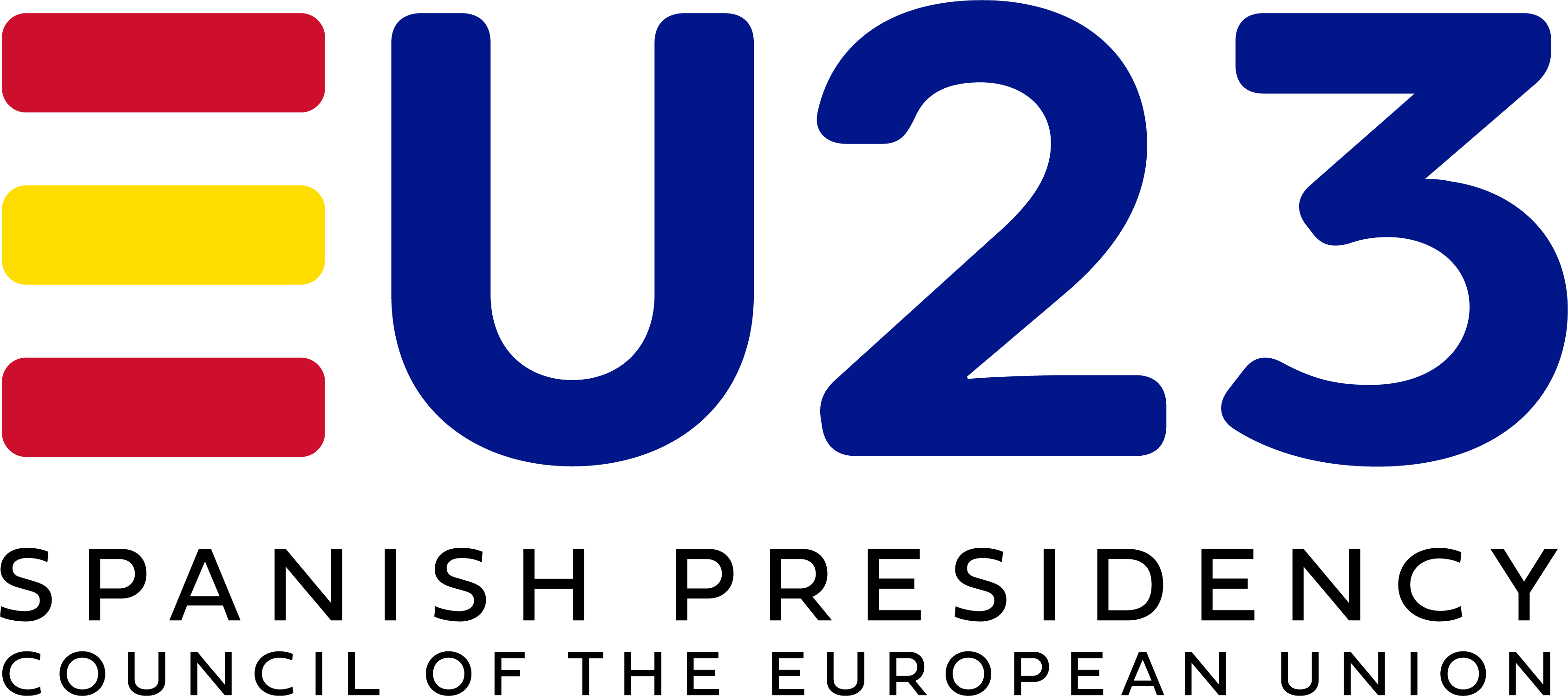
Digital Global Observatories
How Advanced Computing can help shaping our common future in times of increasing uncertainty and unsettled lives?
6th Gago Conference on European Science Policy
A joint organization of Ciencia Viva and Barcelona Supercomputing Center (BSC-CNS)
With the special patronnage of The Spanish Presidency of the Council of the European Union
Barcelona , 23 – 24 October, 2023
Brief Conference Outline
How far advanced computing together with design and use of digital observatories making use of digital twins can help shape our common future in times of increasing uncertainty and unsettled lives?
This question has framed the 6th Gago Conference on European Science Policy, at the Barcelona Supercomputing Centre, under the scope of the Spanish Presidency of the Council of the European Union in 2023, and in a way to foster the impact of the Europe-Latin America Summit of July 2023.
It addresses novel forms of digital observation and governance in health, urban planning and the environment, including the development and usage of digital twins of our communities and landscapes.
The discussion is framed in terms of the challenges and opportunities to consider human agency, be centered on people and be based on changing collective behaviors leading us to safer, cleaner and more “collectively” resilient and cooperative societies.
Emerging trends in the growing digitalization of our communities and economies will be particularly discussed in terms of the increasing world relevance of the Global South and the critically relevant role of Europe-Latin America and Europe-Africa cooperation, as well as the opportunities for Europe to foster South-South cooperation.
Background note
Recent unexpected threats to our common safety and public goods, including public health, such as the Covid-19 pandemic, the increasing activity of individual digital terrorism and the Russian invasion of Ukraine, have shown that our societies are not as safe as we thought. In association with the climate disaster we all are facing, demographic forecasts and the tensions resulting from increasing water scarcity affecting the world's most vulnerable communities, we are facing unprecedented threats that should foster a clear call for action. Deep reflection on these issues must lead us to safer, cleaner, more resilient, cooperative societies. Using novel forms of digital observation and governance, including the digital twins of our communities and landscapes, ought to consider human agency, be centred on people and be based on changing collective behaviours.
This question has framed the 6th Gago Conference on European Science Policy, at the Barcelona Supercomputing Centre, under the scope of the Spanish Presidency of the Council of the European Union in 2023 and in a way to deepen teh discussion promoted at the Europe-Latin America Summit of July 2023. ...
The context: the Gago Conferences on European Science Policy
The Gago Conferences on European Science Policy provide an international forum to strengthen the debate on emerging issues of research and innovation policy in Europe and promote the necessary involvement of major stakeholders in policymaking and the diffusion of knowledge in science education and culture. The Conferences also seek to strengthen international scientific and technological cooperation networking in Europe towards a positive impact on a global scale.
Science and technology (S&T) are key global resources for our collective future, wealth, job creation and shared prosperity at home and abroad. The impact of S&T and innovation result from a collaborative, long-term, collective and uncertain process involving an extensive division of labour, which requires massifying the training of human resources and qualifying the labour force in many economic sectors. Increasing interest in these processes has driven innovative research and practice across various businesses and academic disciplines - from management, marketing, engineering and economics to public policy, sociology, history and law.
"Science is a battle ground, it's not neutral.And if you know it's not neutral, it becomes interesting. It can become part of the modern youth culture. You must choose between generosity and greed, between peace and war, and choose between disclosing or hiding the truth"
José Mariano Gago (2001)
The primary objective of these conferences is to bring together leading representatives from academic, business, social, cultural and government sectors worldwide to present and discuss current and future issues of critical importance for European science and technology, including their impact on fostering social and economic development and shared prosperity both at home and abroad. Multidisciplinary perspectives are encouraged to provide state-of-the-art and useful knowledge to decision-makers in the private, public and social sectors - including informed and effective education, culture, business, government policies and strategies for Europe.
International Steering Committee of the Gago Conferences on European Science Policy :
- Manuel Heitor, Center for Innovation, Technology and Policy Research (IN+), Instituto Superior Tecnico, University of Lisbon, former Minister for Science, Technology and Higher Education, Portugal.
- Rosalia Vargas, Ciencia Viva, Portugal.
- Teresa Riera Madurell, Barcelona Supercomputing Centre (BSC-CNS), Universitat de les Illes Balears (UIB), former Member of the European Parliament, Spain.
- Julio E. Celis, EACS – European Academy Cancer Sciences; former director Danish Cancer Center, Denmark.
International Secretariat of the Gago Conferences on European Science Policy :
The Gago Conferences on European Science Policy provide an international forum for debate on emerging European research and innovation policy issues. Ciência Viva organizes these conferences to celebrate the legacy of José Mariano Gago on the appropriation of science by citizens. José Mariano Gago was the founder of Ciência Viva and the first president of Initiative for Science in Europe.
Organizing Committee
- Josep M. Martorell , Barcelona Supercomputing Centre, Spain
- Teresa Riera Madurell , Barcelona Supercomputing Centre, former member of the European Parliament, Spain
- Manuel Heitor , Centre for Innovation, Technology and Policy Research (IN+), Instituto Superior Tecnico, University of Lisbon, former Minister for Science, Technology and Higher Education, Portugal
- Rosalia Vargas , Ciencia Viva, Portugal
- Julio Celis , European Academy of Cancer Sciences, former Director of the Danish Cancer, Denmark
- Alfonso Valencia , Barcelona Super Computing Centre, Spain.
- Paco Doblas , Barcelona Super Computing Centre, Spain.
- Jose Maria Cela , Barcelona Super Computing Centre, Spain.
- Ulises Cortes , Barcelona Super Computing Centre, Spain.
- Fabrizio Gagliardi , Barcelona Super Computing Center, Spain.
- Angel Font , CEO, La Caixa Foundation Barcelona, Spain; President, European Foundation Centre
Target participants
The conference will gather high-level speakers, including:
- Policy makers in European member states;
- European Commission and European Parliament representatives;
- Leaders and other representatives from research and business institutions,;
- Representatives of young researchers´ associations;
- Key stakeholders of the European Research Area;
- Citizens.
Conference Programme
Monday, 23 October
Place:
9:30 - Reception
10:00 - Welcome
- Pep Martorell, Associate Director, BSC
- Pedro Russo , Leiden University, The Netherlands; Board of Directors of Ciência Viva, Portugal
- Judit Carrera , Director General CCCB
- Manuel Heitor, Former Minister of Science, Technology and Higher Education, Portugal
10.30 - Opening Session 1: Developments, challenges and public participation in Digital Observatories and Advanced Computing
Chair
- Manuel Heitor , Center for Innovation, Technology and Policy Research (IN+), Instituto Superior Técnico, University of Lisbon. Former Minister for Science, Technology and Higher Education, Portugal.
Keynote speech:
- Mateo Valero, Director of the BSC-CNS
Presentation of Barcelona Manifesto : "Fostering Responsible Global Digital Observatories"
- Manuel Heitor , Center for Innovation, Technology and Policy Research (IN+), Instituto Superior Tecnico, University of Lisbon. Former Minister for Science, Technology and Higher Education, Portugal.
11.30 Coffee break
12.00 Session 2: Accountable, Responsible, Transparent ArtificiaI Intelligence for Agenda 2030 and the Sustainable Development Goals, SDGs
- Chair: Ulises Cortés , Professor of A.I. and BSC AI coordinator at the BSC
Keynote speeches:
- Speaker 1: Virginia Dignum , Chair of Social and Ethical AI; Department of Computer Sciences, Umeá University, Sweden
Roundtable discussion :
- Discussant 1. Paulo Dimas , Unbabel, Portugal.
- Discussant 2: Manuela Bataglianni, CEO of Transparent Internet, member of the NGI Ponter Advisory Board, Spain.
- Discussant 3: Juan Manuel del Pozo , Professor of Philosophy, Universitat de Girona (UdG), Spain
- Discussant 4: Liliana Arroyo, Director General of the Digital Society, Business and Labour Department, Generalitat de Catalunya, Spain.
Open Debate.
Concluding remarks:
- Manuel Heitor & Ulises Cortés
13.30 - Lunch break
15.15 - Visit to the exhibition “AI: Artificial Intelligence”, guided by Jordi Torres, Scientific Commissioner for the exhibition, and Luis Nacenta, Commissioner for the exhibition .
16 :15 - Session 3: Urban Observatories: Digital twins of complex and vulnerable urban contexts, including the most vulnerable in the Global South.
Chair:
-
Mercè Crosas , Head of Computational Social Sciences Programme. BSC-CNS.
Keynote speech:
- Paulo Ferrão, IN+/Instituto Superior Técnico, University of Lisbon, Portugal.
Roundtable discussion:
- Discussant 1 : Michael Donaldson , commissioner for Urban Innovation ,of Barcelona City Council. Spain.
- Discussant 2 : Tatiana Roque , Secretaria de Ciencia e Tecnologia, Prefeitura do Rio de Janeiro, Brasil.
- Discussant 3 : F ernando Cucchietti, Date Pre and Post Proccesing Group Manager. Leader of Barcelona Digital Twin Depelopment. BSC-CNS .
Open Debate.
Concluding Remarks:
- Jose María Cela, BSC-CNS,Spain
17.45 - Cofee break
18.00 - Session 4: Environmental Observatories. Digital Twins for blue and green Sustainability.
Chair :
-
Albert Soret , BSC-CNS, Spain
Keynote speech:
-
Nicolaus Hanowski , Head of Mission Management & Ground Segments Department. European Space Agency (ESA).
Roundtable discussion :
- Discussant 1: Alvaro Giménez Cañete, Member of the Board, Spanish Space Agency, and former Director of Science, European Space Agency.
- Discussant 2: Asun Lera St. Clair, DNV, Oslo, Norway.
- Discussant 3: Víctor Homar , University of the Balearic Islands, Spain.
Open Debate.
Concluding Remarks:
- Albert Soret. BSC-CNS, Spain
19.30 Session 5: keynote address
-
Chair: Ulises Cortés , Professor of Artificial Intelligence (AI) at the UPC, and AI coordinator at the BSC
-
Keynote speaker: Manuela Veloso, JP Morgan and Carnegie Mellon University, USA
20.30 - Dinner and Gago Awards on European Science Policy
Tuesday, 24 October
Place:
- “Sala de Juntas”, Rectorate Building, Universitat Politecnica de Catalunya (UPC). (5-minute walking from the BSC headquarters).
9:00 - Session 6: Disease observatories: Data Hubs and Digital Twins towards “One Health”.
Chair :
- Josep Tabernero , Director of the Vall d'Hebron Instituto de Oncologia (VHIO), Barcelona, Spain.
Keynote speeches:
-
Speaker 1 : Ignacio Blanquer , Professor of the Computer System Department at UPV . Coordinator of the Spanish Network of e-Science Board composed of Directors of the EOSC association .
-
Speaker 2 : Johanna McEntyre , European Bioinformatics Institute. Associate Director of EMBL-EBI Services .UK.
Roundtable discussion:
- Discussant 1: Liesbet Geris , Universities of Liège and KUL, Leuven, Belgium, Executive director of the Virtual Physiological Human Institute
- Discussant 2 : P aula Petrone, Barcelona Institute for Global Health (ISGlobal). Leader of the Biomedical Data Science Team.
- Discussant 3: Xavier Prats-Monné , President of the Board of Governors of Sant Pau Hospital, Barcelona, Spain.
- Discussant 4: Pedro Russo , Leiden University, The Netherlands; Board of Directors of Ciência Viva, Portugal.
Open Debate.
Concluding Remarks:
- Alfonso Valencia, BSC-CNS, Spain.
10.45 Coffee break
11.00 Session 7: Understanding the advanced computing infrastructure and skills required to foster Digital Observatories, and the building up and usage of adequate Digital Twins .
Chair:
- Fabrizio Gagliardi, Senior Strategy Advisor of the BSC-CNS.
- Introductory Speech: Sergi Girona, BSC Operations Director.
Roundtable discussion:
- Discussant 1: Sanzio Bassini. Director of Supercomputing Applications and Innovation Department (SCAI), CINECA, Bologna, Italy.
- Discussant 2 : Satoshi Matsuoka, Director of Riken CCS, Japan.
- Discussant 3: Per Öster , Director Advanced Computing Facility, CSC- IT Center for Science, Kajaani, Finland.
- Discussant 4 : Mateo Valero, Director, Barcelona Supercomputing Center (BSC-CNS), Spain.
Open Debate
Concluding Remarks:
- Fabrizio Gagliardi. BSC-CNS, Spain
Place:
- Auditori, BSC Headquarters (5-minute walk from the Rectorate Building).
12:30 - Session 8: Closure
Brief final interventions:
- Pep Martorell , Associate Director of the Barcelona Supercomputing Centre (BSC).
- Àlvar Vinacua , Vicerector d’Estratègia Digital, Universitat Politècnica de Catalunya.
- Jordi Valls , Deputy Mayor of Economy, Finance and Economic promotion of the Barcelona City Council, Spain.
- Joaquim Nadal , Conseller of Research and Universities, Government of Catalonia.
- Representative of the Government of Spain.
- Elvira Fortunato , Minister for Science, Technology and Higher Education, Portugal.
- Raquel Yotti, Secretaria de Estado de Investigación, Spain.
13:30 - Lunch break
15 :30 - Guided visit to MareNostrum V
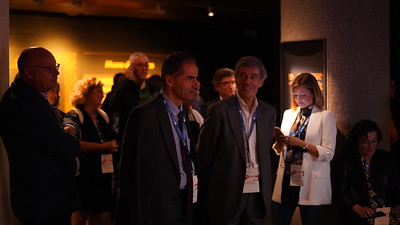
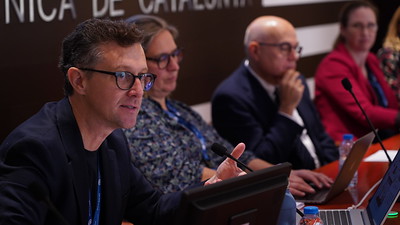
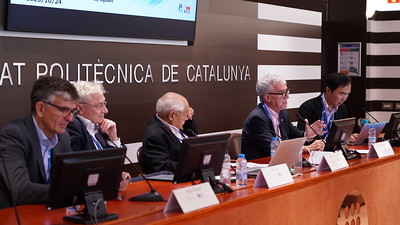
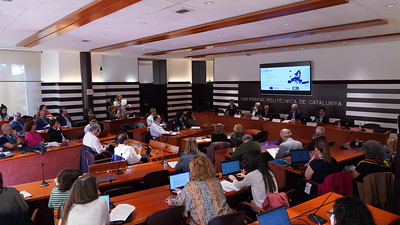
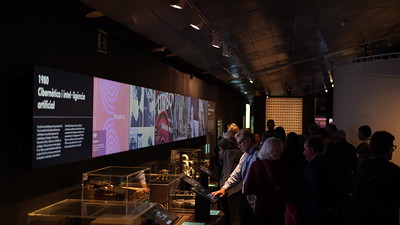
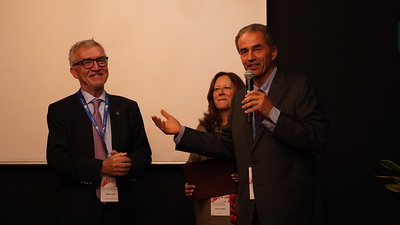
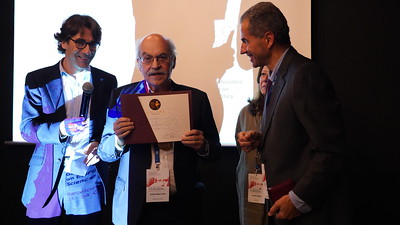
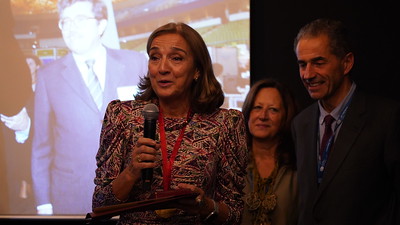
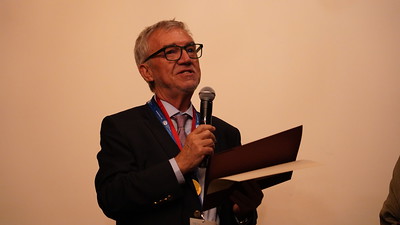
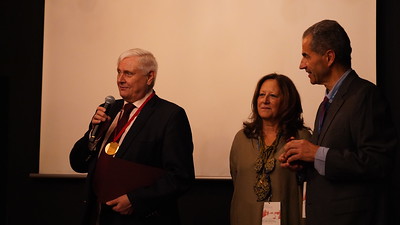
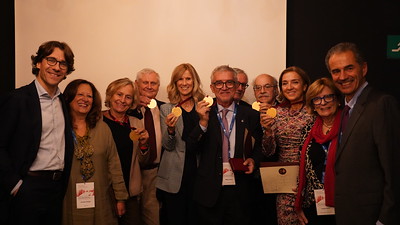
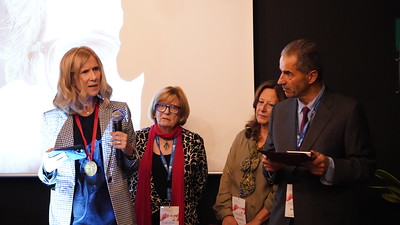
GAGO AWARDS in European Science Policy

Cristina Garmendia
Cristina Garmendia was the Minister of Science and Innovation of the Spanish Government (2008-2011), during the previous Spanish Presidency of the Council of the EU (2010). She is currently Chairwoman of the COTEC Foundation.
She founded several companies such as the Spanish-American company, Satlantis Microsats, of which she was president until December 2020, and has recently been appointed advisor to the European Commission as a member of the Space Advisory Council of the European Union.
Cristina Garmendia was advisor to the European Commission as a member of the High Level Group on maximising the impact of EU Research & Innovation Programmes, which has formulated recommendations for the design Horizon Europe, the EU Framework Programme for Research and Innovation (2021-2027).
She was trained in Biology (University of Sevilla) and has a PhD in Molecular Biology, from the Autonomous University of Madrid, Centre for Molecular Biology Severo Ochoa (CBMSO).

Andreu Mas-Colell
Andreu Mas-Colell is Professor Emeritus of Economics at Pompeu Fabra University. He is also a BSE Emeritus Research Professor.
He hold several government positions, including Minister of Economy and Knowledge of the Government of Catalonia (2010-2016), Secretary General of the European Research Council (2009-2010), Minister of Universities, Research and the Information Society of the Government of Catalunya (2000-2003), and Commissioner for Universities and Research of the Government of Catalonia (1999-2000).
Andreu Mas-Colell was professor of economics at Harvard University (1981-1996) and of economics and mathematics at the University of California, Berkeley (1972-1980). He was also president of the Scientific Advisory Committee of Telefónica Investigación y Desarrollo (2005-2008).
His was trained as Economist at the University of Barcelona, and he has a Ph.D. from the University of Minnesota.

Mateo Valero
Mateo Valero is the Director of Barcelona Supercomputing Center, the Spanish national supercomputing centre, since 2004. He is Full professor of Computer Architecture at the Polytechnic University of Catalonia (UPC) since 1983, and visiting professor at ENSIMAG, Grenoble (France), and at the University of California, Los Angeles (UCLA). He was Chair of the Computer Architecture Department (1983-1984; 1986-1987; 1989-1990 and 2001-2005) and Dean of the Computer Engineering School (1984-1985).
His research focus on computer architecture, with special emphasis on high performance computers: processor organization, memory hierarchy, systolic array processors, interconnection networks, numerical algorithms, compilers and performance evaluation.
Mateo Valero is author of more than 700 publications, He was involved in the organization of more than 300 International Conferences as General Chair (11), including ICS95, ISCA98, ICS99 and PACT01, Steering Committee member (85), Program Chair (26) including ISCA06, Micro05, ICS07 and PACT04, Program Committee member (200), Invited Speaker (70), and Session Chair (61). He has given over 400 talks in conferences, universities and companies.
He has participated in 35 European ESPRIT, RACE and COMETT projects (for some of these projects, he was instrumental in obtaining the participation of Spanish industry), 20 Spanish CICYT projects (similar to NSF projects) and 13 projects with American companies as IBM, Intel, HP and Microsoft.
From 1990 to 1995 he created and directed the European Center for Parallelism of Barcelona (CEPBA) performing basic and applied research in parallel computing. He was also the director of C4, the Catalan Center for Computation and Communications, during 1995-2000. Since October 2000 to 2004, he has been the director of CIRI, the CEPBA-IBM Research Institute, created to conduct research on parallel computers.
He was trained as a telecommunication engineer, at the Technical University of Madrid (UPM) and has a Ph.D. in Telecommunications (Polytechnic University of Catalonia).

Carmen Vela
Carmen Vela was the Secretary of State of Investigation, Development and Innovation (2012-2018). Since 2018, she is Director of Collaborative Projects Eurofins Technologies-INGENASA, as she has extensive experience in immunology, virology, and related areas. Since 2019 she is member of the Board of the Mission Soil Health and Food. She is also member of the Scientific Board of the EJP Soil.
In 1982 she joined INGENASA, (Inmunología y Genética Aplicada), a biotechnology company, created by the National Institute of Industry and moved to the Centre of Molecular Biology Severo Ochoa, in the Autonomous University of Madrid. She worked for the project CBM/Ingenasa, devoted to the development of vaccines and diagnostics for the virus of the African swine plague. President and CEO of the company (1994-2012).
She is author of numerous scientific publications and has patents approved in United States and Europe. She was president of the Association of Women Researchers and Technologists (AMIT). From 2010 until 2012 she was also president of the Spanish Society of Biotechnology (SEBIOT).
Carmen Vela background is in biochemistry (Complutense University of Madrid).

Anna Omedes Regàs
Anna Omedes Regàs is an exceptional leader in the world of scientific museology, science communication and museography. She is the former director of the Museum of Natural Science of Barcelona, with a background in Biology (Autonomous University of Barcelona) and a PhD in Animal Behaviour (University College of Wales, UK, 1981), she has made significant contributions to the field of bioacoustics and acoustic communication of primates.
In 1997 Anna Omedes became director of the Museum of Zoology of Barcelona and perseveringly promoted it to create in 2008, together with the Geology Museum and the botanical gardens of the city, the Natural Science Museum of Barcelona. She led its strategic plan with inclusiveness at the core, the launch of a new headquarters, as well as the creation of a consortium between the Barcelona City Council and the Generalitat de Catalunya to manage the Museum.
She was instrumental in the foundation of the Spanish Association of Science and Technology Museums and Centers, presiding it since 2017. She has also been a member of the board or advisory committees of several institutions and networks such as the Catalan Council for Scientific Communication, the Barcelona Zoo Foundation, the Natural and Cultural Heritage Campus of the University of Girona, the International Committee of the World Biological Corridor and the Monitoring Committee of the ADN Pyrenees project, and still is of the Social Council of the Institute of Marine Sciences (CSIC) and of the Scientific Council of Universcience in Paris. From 2016 to 2020 she was Vice President of the European Network of Science Centers and Museums (Ecsite). In 2022 she received the Beacon of the Year from Ecsite.
She is author of articles and books and speaker in courses and conferences on museology, museography, science communication and bioacoustics; curator of exhibitions; and scientific advisor for biological and museum publications.
Anna Omedes’ talent for communication and dedication has helped her reach the most demanding of audiences: children. She has written several books for them, and her latest masterpiece, Historias de Colores (Colourful kingdom), creatively combines scientific rigour with enchanting illustrations.
Anna’s vision of science engagement organisations as citizen labs, has revolutionised the concept of science centres and museums. By emphasising participatory methods and engaging citizens in research and social innovation projects, she envisions science institutions playing a key role in addressing societal challenges such as climate change, pollution, biodiversity loss and social exclusion.

Per-Edvin Persson
Per-Edvin Persson began his academic journey by earning a Master of Agriculture and Forestry degree from the University of Helsinki in 1974, followed by a Doctor of Agriculture and Forestry degree in 1981, specializing in limnology. His expertise in this field earned him the position of Adjunct Professor of limnology at the University of Helsinki in 1981. He has authored over 50 scientific publications and over 200 popular articles, including several articles on science centres and museums; and he has overseen the creation of four scientific monographs. He served on the Board of the Academy of Finland, the Finnish research council system, in 1992-1994 and was a member of the Nordic Science Policy Council, based in Copenhagen, in 1983-1988. Professor Persson’s commitment to science education is evident in his roles as Director of Science at Heureka, the Finnish Science Centre, from 1987 to 1991, and later as its director from 1991 to 2013. Under his leadership, Heureka rose to become a globally acclaimed science centre known for its groundbreaking interactive exhibitions.
Per-Edvin Persson has held prominent positions in numerous national and international organisations. He served as the President of the Nordic Science Centre Association (1987-1991) and later assumed the presidency of the European network of science centre and museums, ECSITE (1997-1998). His dedication to advancing science education transcended borders, as he became the President of the Association of Science-Technology Centers (ASTC) in Washington, D.C. in 2004-2005. He initiated the series of global science centre meetings known as World Congresses of Science Centres and chaired the first one in Finland in 1996.
He has been awarded the Finnish State Prize of Information twice, in 1987 and 2014, the Oskar von Miller gold medal from Deutsches Museum in 2002, and the ASTC Fellow Award for Outstanding Contribution to the field in 2007. He received the prestigious ASPAC President’s Award for his significant contributions to the Asia Pacific Network of Science-Technology Centres in 2014. His passion and dedication to promoting science education have made him an Honorary Fellow of ECSITE in 2013 and the Nordic Science Centre Association in 2015.
Professor Persson’s impact extends beyond the realm of science education. He has been knighted as a 1st-grade Knight of the Order of the White Rose of Finland and is a Knight of the National Order of Merit in France. These honours reflect his lifelong commitment to advancing knowledge and inspiring generations.
First day
Centre de Cultura Contemporània de Barcelona (CCCB)
Second day
Rectorate Building, Universitat Politecnica de Catalunya (UPC)

